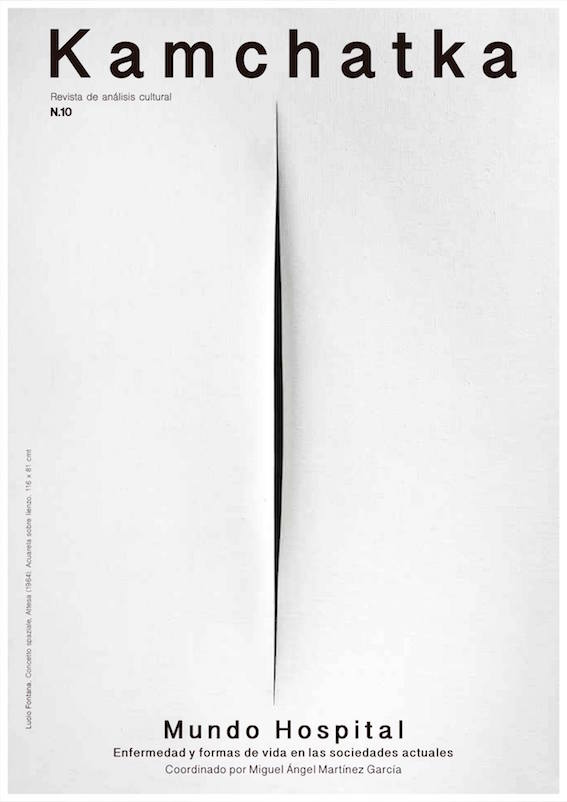Marta Dillon y Joaquín Hurtado: crónicas de la enfermedad crónica. / Marta Dillon and Joaquín Hurtado: chronicles of a chronic disease
DOI:
https://doi.org/10.7203/KAM.10.10631Keywords:
Marta Dillon, Joaquín Hurtado HIV/sida, enfermedad crónica, crónicas, cuerpo Abstract
Abstract
Resumen: A través de la lectura de las crónicas sobre el VIH/sida de Marta Dillon y Joaquín Hurtado, analizo cómo estos autores narran la convivencia crónica con el VIH que les impone el aprendizaje de nuevas formas de gestionar la vida y de autorrepresentarse. Estudio las crónicas no solo como estrategias terapéuticas para lidiar con los profundos cambios corporales y emocionales que trae consigo el diagnóstico, sino también como estrategias políticas para incidir en la normalización y percepción social de la enfermedad como entidad crónica. La reescritura del cuerpo, consustancial al devenir crónico de la enfermedad, enfrenta a los autores a cuestionar la improductividad o incapacidad de los sujetos afectados por el VIH, y los límites entre el yo y el otro (virus); la salud y la enfermedad, todo ello en el contexto de la medicalización contemporánea de los cuerpos y las subjetividades.
Palabras Clave: VIH/sida, representación, crónicas, enfermedad crónica, cuerpo, subjetividad
Abstract: Through the reading of the chronicles on HIV / AIDS by Marta Dillon and Joaquín Hurtado, I analyze how these authors narrate the chronic coexistence with the HIV that imposes on them the learning of new ways of managing life and self-representation. I study the texts by Dillon and Hurtado not only as therapeutic strategies to deal with the impacts on bodies and emotions that the diagnosis brings but also as political strategies in order to change the social perception of the disease as a chronic condition. Through the rewriting of the body, inherent to the chronic evolution of the disease, the authors question the unproductivity or incapacity of the subjects affected by HIV and the limits between the self and the other (virus), health and illness, all in the context of the contemporary medicalization of bodies and subjectivities.
Key words: HIV/AIDS, representation, chronic disease, chronicle, body, subjectivity
 Downloads
Downloads
 References
References
Bielsa, Esperança (2006). The Latin American Urban Crónica: Between Literature and Mass Culture. Lanham: Lexington Books.
Brito, Alejandro. “Con el diablo en el cuerpo”, Letra S. 4 de diciembre (2003).
Cambell, Bruce F. (2006). The Patient’s Guide to Chronic Fatigue Syndrome [and] Fibromyalgia. Palo Alto: CSH Press.
Canguilhem, Georges (2004). Escritos sobre la medicina. Buenos Aires: Amorrortu.
Chambers, Ross (2000). Facing It. AIDS Diaries and the Death of the Author. Michigan: University of Michigan Press.
Dickinson, Peter (1995). “Go-go Dancing on the Brink of the Apocalypse: Representing AIDS”, en Dellamora, Richard (ed.), Postmodern Apocalypse. Theory and Cultural Practice at the End. Philadelphia: University of Pennsylvania Press: 219-240.
Dillon, Marta (1998). Convivir con virus. [Buenos Aires]: Editorial La Página.
Dillon, Marta (2004). Vivir con virus: Relatos de la vida cotidiana. Buenos Aires: Grupo Editorial Norma.
Foucault, Michel (1995). La arqueología del saber. Madrid: Siglo XXI.
Foucault, Michel (1996). La vida de los hombres infames. La Plata: Editorial Altamira.
Giorgi, Gabriel (2009). “Después de la salud: la escritura del virus”.
Estudios 17, 13- 34.
Hurtado, Joaquín (2003). Crónica sero. Monterrey: Fondo Estatal para la Cultura y las Artes de Nuevo León; México D.F.: CONACULTA.
Hurtado, Joaquín. “La antipatía activa por la muerte”. Letra S 108 (2005), 7 de julio.
Hurtado, Joaquín. “Contingencia moral”. Letra S 129 (2007a), 12 de abril.
Hurtado, Joaquín. “Pánico escénico”. Letra S 128 (2007b), 1 de marzo.
Hurtado, Joaquín. “Yoga”. Letra S 148 (2008), 6 de noviembre.
Hurtado, Joaquín. “Mi lipo”. Letra S 179 (2011), 2 de junio.
Hurtado, Joaquín. “Burocrasida”. Letra S 190 (2012), 3 de mayo.
Kübler- Ross, Elisabeth (1969). On Death and Dying, New York: The Macmillan Company.
Lanza Lobo, Cecilia (2004). Crónicas de la identidad: Jaime Sáenz, Carlos Monsiváis y Pedro Lemebel. Quito: Universidad Andina Simón Bolívar, Sede Ecuador; Ediciones Abya-Yala; Corporación Editora Nacional.
Meruane, Lina (2012). Viajes virales: la crisis del contagio global en la escritura del sida, Santiago de Chile: Fondo de Cultura Económica.
Michie Susan, Jane Miles y Weinman. John. “Patient-centredness in chronic illness: what is it and does it matter?” Patient Education ansd Couseling 51 (2003): 197-206.
Núñez, Sergio (1994). Vivir con SIDA. Seis años de un portador. Buenos Aires: Ediciones de la Urraca.
Rotker, Susana (1992). La invención de la crónica, Buenos Aires: Ediciones Letra Buena.
Sontag, Susan (1978). Illness as Metaphor, New York: Farrar, Straus and Giroux.
Sfez, Lucien (2008). La salud perfecta. Crítica de una nueva utopía. Buenos Aires: Prometeo Libros.
Stolkiner, Alicia I. (2013). “Medicalización de la vida, sufrimiento subjetivo y prácticas en salud mental”. Facultad de Trabajo Social: Universidad Nacional de La Plata.
Vaggione, Alicia (2013). Literatura / enfermedad. Escrituras sobre sida en América Latina. Córdoba: Centro de Estudios Avanzados.
Verolet, Charlote, et al. (2015). “Lipodystrophy among HIV-infected patients: a crosssectional study on impact on quality of life and mental health disorders”, AIDS Research and Therapy.
Downloads
Published
How to Cite
-
Abstract1722
-
Artículo (Español)707
Issue
Section
License
This journal provides an immediate free access to the content on the principle that freely make investigation available to the public, which promotes an increased global knowledge exchange.
Unless otherwise indicated, texts published in this journal are under the license Attribution-NonComercial 4.0 by Creative Commons. These texts may be copied, distributed and publicly communicated whenever the publication’s author and title are quoted and whenever they are not used for commercial purposes. In any case, intellectual property of the articles and its potential economic rights entirely belong to its authors.
The full license can be consulted on https://creativecommons.org/licenses/by-nc/4.0/. We encourage authors to disseminate papers published in Kamchatka. Journal of cultural analysis electronically, in institutional digital repository or in their websites.





